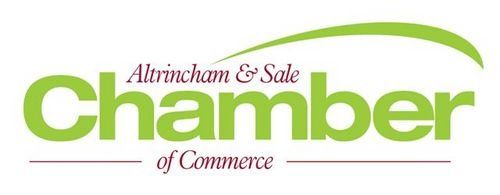Court of Protection
Court of Protection
Court of Protection
The Court of Protection provides a format for a Deputy to resolve a dispute in which those concerned, often the family and the local authority, cannot reach agreement.
Some cases will need to be resolved by a Judge, such as a question of capacity, but the majority can be resolved through mediation. It allows for the parties to express their views and possibly take into account the views of the elder, as one should under the MCA Code of Conduct. It also allows the parties to agree on other matters which are outside the jurisdiction of the Court. An example of this would be when we were dealing with a financial challenge to the conduct of a Deputy - we were able to deal with the sharing of the mother's jewellery, which we discovered had been the real cause of the fall out.
Typical cases where mediation could be used are:
- Challenge to a deputyship
- Challenge to the financial management
- Care issues
- Conflict with care providers
- Accommodation needs
- Disputes local authorities
- Treatment decisions
- Creation of a statutory will
Research undertaken says that when looking at court of protection cases
“The majority of solicitors favour elder mediations, considering them more effective and less traumatic than going to court.”
Unfortunately this very clear advice is not followed in practice and it is for this reason that we are setting up elders mediation specifically to provide a professional and dedicated team to resolve issues for the elder and vulnerable person without the need and trauma of going to court.
Who pays?
In Court of Protection mediations the parties can choose to split the costs of the mediation between them, or it may be that the Deputy feels that it is in the best interest of the person without capacity that the costs of the mediation is paid from their estate.
We have a dedicated website to Elder issues which can be found at www.eldersmediation.co.uk
Save time
Save time
Save costs
Save costs
Save stress
Save stress
Keep control
Keep control
Meet your expert Mediators
Meet your expert Mediators
Phil, Tim & Mark are our specialists in these type of disputes.
Want more information?

© 2024
North West Mediation Solutions Limited
Latest news

by Victoria Greenwood
•
04 Mar, 2021
We like to think we will always be around. Unfortunately, our inability to confront our own mortality can have a disastrous effect on those closest to us and our businesses. All businesses need to deal with succession, but farming families are particularly vulnerable to the effects of failing to deal with succession. Why is succession planning so important within farming? One of the main reasons is that children are often involved in working on the family farm and there is this unwritten understanding that one day all of this will be yours. Farming families are also notorious for not having partnership agreements in place, which again can leave the business open to potential disputes over the ownership of the business and its assets. Issues within farming One of the most common disputes that arise in farming families from a lack of succession planning is a proprietary estoppel claim – briefly put this is where: A representation, promise, assurance or other encouragement by the defendant giving rise to an expectation by the claimant that he/she would have a certain proprietary interest. There is reliance by the claimant upon that expectation. Finally, the claimant suffers a detriment in consequence of his/her reasonable reliance on the promise. When can mediation help? During the planning discussions Getting to the actual discussion about succession is often the first hurdle. Farmers are often so busy running the farm that they don’t have time to think about succession planning and for many people having this sort of discussion doesn’t come easy. Family members don’t want to rock the boat – children don’t want to disappoint their parents by admitting they don’t really fancy running the farm. Parents may feel that they are forcing their children into running the farm, but then equally children can be insensitive with their new ideas for the farm, which can often lead to disputes with their elders. Having an open and honest conversation as early as possible – and before a problem arises, is the best course of action. The children may not want to carry on the farm, but by knowing this the parents can plan for their retirement and have something to aim for. Sometimes these discussions will get out of hand. Heated debate may take place and people may get offended and upset. Mediation enables an independent third party to come in and speak with all of those involved. The mediator can: Explore the goals of each family member and what they want to achieve Facilitate conversations between family members so that they understand what others feel and want Enable the family to come up with a way forward together Where no discussions have taken place and litigation ensues Proprietary estoppel cases are fuelled with emotion and often to lead to lengthy, bitter and very expensive litigation. Whist there are practical steps you can take to avoid claims such as avoiding making promises and succession planning, this isn’t always the case. If faced with a claim for proprietary estoppel the parties should consider the use of mediation over litigation as the advantages of using mediation include: Confidentiality – farming communities are small, and these cases are ripe for local gossip and media attention. Cost – a mediation costs between £1500 - £3000 per party vs legal costs of around £100,000 if it went to trial. Speed – the mediation can be arranged within a few weeks and dealt with in one day - in comparison to the time it will take to bring the matter to trial (at least a year) and a possible 3 to 5 day hearing. The parties decide on the solution rather than a Judge making a decision (which often suits neither party).

by Victoria Greenwood
•
17 Feb, 2021
Despite popular opinion they are not something which should be only considered in later life, or at the onset of an illness but right now to ensure your wishes will be respected should you lose mental capacity, be that temporarily or indefinitely. Lasting Powers enable you, the donor, to appoint someone you know and trust to act in your best interest, when you are unable to do so. Their purpose is to promote your independence. Most attorneys will be appointed family members – children and grandchildren. Families do not always agree on things, and this will be no exception when it comes to making decisions as an appointed attorney. What can cause issues? • Underlying family tensions o The initial appointment of the attorney(s) may have exacerbated tensions between family members, with some questioning why they were only appointed as replacement attorney for example. • Lack of consensus of agreement between attorneys • Lack of agreement between attorney(s) and other family members • Lack of agreement/consultation between attorneys, family members and medical professionals • Lack of inclusion/consultation with the donor What kind of disputes can arise? • Accommodation decisions • Financial management • Property management • Care/treatment decisions • Gifts Family disputes can increase the risk to the donor as the disputes may mean that not all decisions are being made in the donor’s best interests, which can have a negative effect on the donor’s care, health and wellbeing. The Court of Protection and the Mental Capacity Act Code of Practice encourage those involved in an attorney dispute to attempt mediation. The mediator must have regard to the Mental Capacity Act 2005 (“MCA”), and one of the areas where mediation helps rebalance the power between donor and attorney(s) is that any settlement must comply with Section 4 of the MCA: “a decision made for a person who lacks capacity must be made in the best interests of that person” Mediation is ideal when people are not communicating well or not understanding each other‘s point of view. It can improve relationships and stop future disputes, so it is a good option for attorneys as it is in their interest to maintain good relationships in the future. Mediation • ensures issues are addressed in the best interests of the donor • involves the donor and takes into account their wishes and feelings • supports the donor in making decisions • enables parties to communicate effectively and understand each other’s points of view • likely cheaper than going to the Court of Protection









